“Ye are of your father the devil, and the lusts of your father ye will do. He was a murderer from the beginning, and abode not in the truth, because there is no truth in him. When he speaketh a lie, he speaketh of his own: for he is a liar, and the father of it."
― The Gospel of John 8:44 KJV
The Wolves Within is a must-read for every believer who refuses to be deceived.
Hit the Tip Jar and help spread the message!
This post contains affiliate links, which means I may receive a commission or affiliate fee for purchases made through these links.
Unlock the mysteries of Biblical cosmology and enrich your faith with some of the top rated Christian reads at BooksOnline.club.
Click the image below and be sure to use promo code SCIPIO for 10% off your order at HeavensHarvest.com: your one stop shop for emergency food, heirloom seeds and survival supplies.
Related Entries
It is a peculiar blindness indeed, this modern Christian affection for Rabbinic Judaism.
Not for the faith of Abraham, Isaac, and Jacob, nor for the Law as it was handed down to Moses, nor for the prophetic voices that heralded the coming of Christ, but for a religion constructed in direct opposition to Him. A religion whose ultimate authority is not Moses or the Prophets, but the rabbinic rulings codified in the Talmud. A religion that does not merely reject Jesus of Nazareth, but classifies His followers as idolaters, lumping them into the same category as the pagans against whom God’s wrath was kindled in the days of Israel’s apostasy.
I am well aware that to criticize the Talmud is to venture into exceedingly dangerous territory — particularly after the passage of the Anti-Semitism Awareness Act — as hate speech laws draw ever closer to becoming realities in America. This is not simply because the subject is complex (though it undoubtedly is), but because it has been shrouded in layers of obfuscation, misdirection, and outright suppression for centuries.
The mere act of scrutinizing Judaism’s governing religious texts invites swift condemnation — mere inquiry itself by a Gentile at odds with the rabbis is a lethal transgression. But truth cannot be held hostage by social taboos, nor can vast swathes of Christendom afford to continue to blind themselves to the reality of a system with which so many Christians have sought alignment since 1948.
Christians, it seems, are eager to imagine themselves as natural allies of Judaism, wholly unaware that the system they admire views them with suspicion at best and murderous contempt at worst. And where does this contempt find its most concrete expression? In the pages of the Talmud, the bedrock of Jewish legal and “ethical” thought.
To understand this system, one must first grasp what the Talmud is — not merely a collection of rabbinic musings, as some naïve apologists claim, but the very foundation of Jewish law and identity. As we have discussed previously, it consists of two primary components:
The Mishnah – The written codification of the so-called Oral Law, which the rabbis claim was given to the 70 elders alongside the written Torah and was preserved through oral transmission until its formal recording in the second century A.D.
The Gemara – A vast corpus of commentary on the Mishnah, where rabbinic authorities argue, refine, and establish legal precedent.
Together, these form the Talmud. The legal framework derived from the Talmud is known as Halakha, a system governing every aspect of Jewish life, from dietary restrictions to business dealings to the treatment of Gentiles.
— Jews studying Talmud, París, (1880–1905).
Here, the distinction between permissible and encouraged is of paramount importance. Unlike Christian ethics, which are rooted in moral absolutes — what is good is to be done, and what is evil is to always be shunned — Talmudic law operates within a far more fluid moral structure. An act may not be explicitly encouraged, yet if it is deemed permissible within rabbinic jurisprudence, it carries no intrinsic stigma or legal repercussions.
This is where many Christians fail to grasp the gravity of Talmudic rulings concerning idolaters.
You see, to be an idolater, under rabbinic law, is to fall outside the realm of moral obligation. In a similar vein to Islam, nearly all of the Judaic religion’s moral strictures apply solely to one’s fellow co-religionist. The ethical constraints that apply between Jews do not extend to dealings with Gentiles, particularly those classified as avodah zarah — practitioners of idolatrous worship. Christianity, despite its foundation in the Old Testament, is unequivocally placed in this category.
It is here that one encounters the principle of mipnei darchei shalom, meaning “for the sake of peace.” This concept is invoked repeatedly in cases where strict application of Jewish law might provoke Gentile hostility. In such instances, certain leniencies may be granted — not because the underlying law is deemed immoral or unjust, but because following it too openly would bring undesirable consequences. In other words, accommodations to Gentiles are made not out of universal moral obligations, but out of pragmatic self-interest.
To illustrate: if strict application of Halakha permitted defrauding an idolater but doing so would cause anti-Jewish sentiment, then leniency might be granted “for the sake of peace.” This does not mean the underlying principle — that there is no moral obligation to deal honestly with an idolater — is overturned. It simply means that, in certain cases, it is expedient to act otherwise. The allowance does not refute the foundational ethic; it merely suspends its application when necessary.
This is the key distinction that so many fail to grasp. The fact that certain actions are permitted — even if not encouraged — means that they carry no intrinsic moral stigma. And when a religious system removes moral stigma from a practice, it is only a matter of time before that practice becomes normalized, if not outright justified. This is the function of Halakha: to delineate not simply right from wrong, but what can be done without liability. Thus, Christians who believe themselves to be an extension of the Abrahamic faith along with Judaism are under a dangerous delusion, for under Talmudic law, they are idolaters. While practical considerations may restrain overt hostility, the underlying theological framework remains unchanged.
There is no common moral ground.
There is no shared ethical foundation.
And there is certainly no reciprocity in this supposed “Judeo-Christian” alliance.
“Gentile souls are of a completely different and inferior order. They are totally evil, with no redeeming qualities whatsoever. …
There is something infinitely more holy and unique about Jewish life than non-Jewish life.”
— Rabbi Yitzchak “Malakh” Ginzburg, Chabad-Lubavitcher & Kabbalah teacher. The Jewish Week, April 26th, 1996.
While some Gentiles may imagine themselves to be aligned with the faith of Abraham, the truth is that in the eyes of Talmudic jurisprudence, all non-Jews (excluding Muslims and Unitarians by some interpretations) fall into one of two categories: idolaters or Noahides.
To grasp the severity of this classification, one must first understand the Talmudic reasoning behind it. The Noahide system, in theory, allows Gentiles to live peacefully under Jewish rule so long as they adhere to a minimal moral code — the so-called Seven Noahide Laws. These laws, according to rabbinic teaching, were given to Noah and include prohibitions against idolatry, blasphemy, murder, theft, sexual immorality, eating flesh from a living animal, as well as a requirement to establish courts of justice.
On the surface, this seems an innocuous moral framework, even commendable. But the Devil is, as always, in the details. The Noahide system is not a universalist doctrine of mutual respect; it is an insular construct that establishes a strict hierarchy — one where ethnic Jews hold supreme status, and Gentiles are permitted only conditional existence within their framework. It is ultimately a legal status that must be recognized and conferred by Jewish authorities. And herein lies the inescapable reality: no Gentile has been legally inducted as a Noahide for over 2,500 years!
What this means is staggering in its implications: every Gentile alive today, under the Talmudic legal system, is classified as an idolater by default.
There is no middle ground, no path to righteous standing, no conditional approval based on ethical behavior. One is either a Jew or an outsider — an idolater — subject to the corresponding legal and ethical obligations (or lack thereof) that Halakha prescribes. This fact alone should shatter any delusions of a place for Gentiles within the Jewish legal framework. The oft-invoked "righteous Gentile," the so-called Noahide who adheres to the Seven Laws, is not a contemporary legal reality but a rhetorical smokescreen. It is a category that has been theoretically available but practically inaccessible for over two and a half millennia.
Under Talmudic law, if one is not a Jew and not a Noahide, one is — by default — an idolater, regardless of one’s personal beliefs or ethical conduct.
— Talmud Torah, ill. by Ephraim M. Lilien.
The texts presented here are not the obscure mutterings of fringe rabbis but rather foundational writings within Talmudic Judaism — positions held not merely in theoretical abstraction but codified within the Halakha. The pattern is unmistakable: an insular, supremacist ethic that regards the Gentiles as an ontologically inferior enemy — fit only for subjugation, deception, or extermination (when circumstances permit). This is not hyperbole — it is the legal scaffolding upon which rabbinic Judaism operates, and it stands in direct contradiction to the ethics of the Old Testament and the Gospel of Christ.
The Talmud defines righteousness in purely ethnoreligious terms — to be righteous is to be a Jew:
Know that the World to Come is hidden away only for the righteous; they are the Jews. The fact that you see Israel suffering difficulty in this world [reflects] the good that is hidden away for them. …
Conversely, a Gentile is inherently disqualified from eternal life unless he renounces his identity and submits to the yoke of rabbinic authority. Or in other words, Jewishness alone secures one’s place in eternity:
All of the Jewish people, even sinners and those who are liable to be executed with a court-imposed death penalty, have a share in the World-to-Come, as it is stated: “And your people also shall be all righteous, they shall inherit the land forever; the branch of My planting, the work of My hands, for My name to be glorified” (Isaiah 60:21). And these are the exceptions, the people who have no share in the World-to-Come, even when they fulfilled many mitzvot: One who says: There is no resurrection of the dead derived from the Torah, and one who says: The Torah did not originate from Heaven, and an epikoros, who treats Torah scholars and the Torah that they teach with contempt.
No matter one’s crimes, murderers and rapists will share in the world to come before those who reject rabbinic authority and doctrines. This stands in direct opposition to the Biblical witness. In Ezekiel 18:4, God declares, “The soul that sinneth, it shall die.” The prophets of Israel did not grant automatic salvation based on ethnic identity — they called for repentance and faithfulness to God's commandments. This rabbinic doctrine is not an extension of the Mosaic faith — it is an inversion of it.
In Isaiah 49:6, God declares to His servant, the Messiah, “I will also give thee for a light to the Gentiles, that thou mayest be my salvation unto the end of the earth.” The prophets — particularly Isaiah — foretold the inclusion of all nations in God's redemptive Kingdom, but Rabbinic Judaism mutilates this vision, restricting divine favor to those who submit to an ethnic caste. This is the very same spirit of exclusivism that Christ rebukes in the Pharisees:
Woe unto you, scribes and Pharisees, hypocrites! for ye shut up the kingdom of heaven against men: for ye neither go in yourselves, neither suffer ye them that are entering to go in.
— The Gospel of Matthew 23:13 KJV
The Talmudic vision of eschatology is not a faithful extension of the Old Testament's promises — it is a rejection of them.
A Gentile under rabbinic authority exists under a de facto death sentence unless he submits to rabbinic jurisdiction:
For every gentile who does not accept these commandments must be executed if he is under our undisputed authority. …
…Moses was commanded by the Almighty to compel all the inhabitants of the world to accept the commandments given to Noah's descendants.
If one does not accept these commands, he should be executed. A person who formally accepts these commands is called a resident alien.
The so-called Noahide Laws are the only legal pathway to being tolerated within the rabbinic theocracy, and even this is a dead letter. As Issurei Biah, Ch. 14.8 states, “We accept resident aliens only during the era when the Jubilee year is observed.” The last Jubilee year was observed in the Northern Kingdom before its destruction in 737 BC, meaning that, by their own legal standard, no Gentile has been inducted as a Noahide in over 2,500 years.
Thus, the Noahide system is not an olive branch — it is a historical loophole allowing Talmudists to feign universalism when convenient. The reality is that Rabbinic Judaism sees all Gentiles as outside of the law, and as Melachim uMilchamot states, outside of the law means outside of life. This is a fundamental rejection of Biblical ethics. The Old Testament explicitly protects the ger (foreigner) and condemns unjust treatment of those outside Israel (Exodus 22:21, Lev. 19:33-34). The New Testament follows this ancient principle, declaring that “God is no respecter of persons” (Deut. 1:17, 10:17, Acts 10:34) and extends salvation to all nations.
Rabbinic Judaism upholds the opposite.
— Talmudists School (~1908), ill. by Samuel Hirszenberg.
Take Mishnah Sanhedrin 57a, where it is stated that theft, rape, or even murder, if committed by a Jew against a Gentile, is not only permissible, but is given a pass in the eyes of God. While there are so many to choose from it’s dizzying, this passage stands amongst the most egregious moral perversions of the Talmud:
One who steals or robs, and likewise one who engages in intercourse with a married beautiful woman who was taken as a prisoner of war, and likewise all actions similar to these, if they are done by a gentile to another gentile, or by a gentile to a Jew, the action is prohibited; but if a Jew does so to a gentile, it is permitted? …
…if a Jew does so to a gentile, it is permitted, he taught in the former clause that if a gentile does one of these, it is prohibited. If the baraita were to state that if a gentile does so, he is liable, it would have to state that if a Jew does so to a gentile, he is exempt, because this is the opposite of liable. That would indicate that it is actually prohibited for a Jew to do so to a gentile, and that he is merely exempt from liability, which is not the case.
The Talmudic apologists may try to sugar-coat this as a mere technicality, but what is being taught here is simple: Jews are allowed to violate the sanctity of non-Jewish lives. Similarly, a gentile who strikes a Jew is considered to have stricken God:
Rabbi Ḥanina says: A gentile who struck a Jew is liable to receive the death penalty… One who slaps the cheek of a Jew is considered as though he slapped the cheek of the Divine Presence…
The suggestion that gentile blood is worth less than Jewish blood is not just deeply offensive — it is abhorrent in every sense.
What’s more, this double standard doesn’t just apply to isolated acts of wrongdoing; it’s embedded in the very framework of their legal system. It is a betrayal of every concept of justice and decency, and yet it’s celebrated as divine law by the Talmudists. Under this twisted logic, Rabbinic Jews are empowered to brutalize Gentiles, secure in the knowledge that they will face no earthly or Heavenly consequences for their actions.
The hostility does not end with legal or ontological status. Even for Gentiles not under Rabbinic control, Talmudic jurisprudence repeatedly endorses theft, fraud, and deceit against them:
Accordingly, if we see an idolater being swept away or drowning in the river, we should not help him. If we see that his life is in danger, we should not save him.
We should provide for poor idolaters together with poor Jews for the sake of peace. One should not rebuke idolaters [from taking] leket, shich'chah, and pe'ah, for the sake of peace. One may inquire about their well-being - even on their festivals - for the sake of peace.
One may never repeat good wishes to them. Also, one should not enter the house of a gentile on one of his festivals to wish him well. If one encounters him in the marketplace, one may greet him meekly with a serious countenance.
The Talmud continues, stating that “One who returns lost property to gentiles adds to the property that they stole from Jews.” (Mishnah Sanhedrin, Ch. 76b.2).
On the other hand, the Torah consistently teaches mercy, even to strangers and enemies. In Exodus 23:4-5, Israel is commanded, "If thou meet thine enemy’s ox or his ass going astray, thou shalt surely bring it back to him again." God directs Israel to show compassion even to their enemies, let alone a non-Jewish person in need. Jesus similarly taught in the parable of the Good Samaritan (Luke 10:25-37) the idea that mercy towards our fellow man transcends ethnic and religious lines. By contrast, the Talmud's edicts show a disturbing tribalism that fundamentally distorts the Torah’s intent: mercy towards our fellow man should not be limited by ethnic or religious boundaries.
The following edict represents a rare moment where Talmudic reasoning reluctantly upholds Torah when it might be seen by outsiders as a moral failure:
It is permissible to keep an object lost by an idolater, for Deuteronomy 22:3 speaks of returning "an object lost by your brother." Indeed, if one returns such an article, one transgresses a prohibition, for one strengthens the power of the wicked peoples of the world. If, however, one returns it to sanctify God's name, so that others will praise the Jewish people and know that they are trustworthy, this is praiseworthy.
When there is a possibility of the desecration of God's name, it is forbidden to keep an object lost by an idolater, and it must be returned. As part of "the ways of peace," we should always bring in their utensils from the outside, lest they be taken by thieves, as we do for utensils owned by Jews.
The insistence on returning lost property to prevent desecration of God’s name does reflect some moral integrity, though the rationale is thoroughly self-serving: it is ultimately about preserving the Jewish people’s reputation. The true spirit of the Law, however, is that justice and mercy are due to all people — not for reputation’s sake but because it aligns with God’s character. The Torah, which Rabbinic Judaism alleges to honor and uphold, commands the opposite: “Thou shalt not have in thy bag divers weights, a great and a small. … For all that do such things, and all that do unrighteously, are an abomination unto the Lord thy God.” (Deuteronomy 25:13-16). The Old Testament consistently commands honest business dealings with Gentiles, while the rabbis encourage fraud.
The Talmud also advocates for dishonesty as a legal strategy against Gentiles:
The mishna issues its ruling with regard to a gentile customs collector, whom one may deceive, as it is taught in a baraita: In the case of a Jew and a gentile who approach the court for judgment in a legal dispute, if you can vindicate the Jew under Jewish law, vindicate him, and say to the gentile: This is our law. If he can be vindicated under gentile law, vindicate him, and say to the gentile: This is your law. And if it is not possible to vindicate him under either system of law, one approaches the case circuitously, seeking a justification to vindicate the Jew. Consequently, if there is no consideration of the sanctification of God’s name, the court does approach the case circuitously. Apparently, it is permitted to deceive a gentile.
The Torah explicitly condemns falsehood (Exd. 20:16, 23:1, Lev. 19:11) and commands integrity in judicial matters. When faced with these glaring inconsistencies, the rabbis attempt to make a distinction with those gentiles mentioned within the Mosaic Law:
It is not difficult, as this ruling that permits the court to deceive a gentile is issued with regard to a regular gentile, whereas that verse, which teaches that it is prohibited to deceive a gentile, is stated with regard to a gentile who resides in Eretz Yisrael [the land of Israel -SE] and observes the seven Noahide mitzvot.
While it attempts to justify legal manipulation based on the distinction between "regular gentiles" and those following the Noahide laws, the moral inconsistencies are glaring. The broader scriptural mandate for justice and fairness transcends ethnic and religious boundaries, condemning any form of legal deception against non-Judeans. Indeed, the Torah mandates that "justice, justice shalt thou pursue" (Deut. 16:20).
At the core of this passage, and at the core of the Talmud itself, lies a twisted ethic of extermination and domination:
Kill the best of the heathens; crush the brain of the best of serpents. The most worthy of women indulges in witchcraft.
If one checks the footnotes to this citation, you will see Talmudic casuistry on display — that ever-convenient sleight-of-hand, where the most reprehensible doctrines are dressed up in convoluted explanations to shield them from scrutiny. "Oh, this only applies in times of war" — this is the classic dodge that the rabbis deploy whenever their words are exposed for their barbarity.
Let's be perfectly clear here: Nowhere in the original text of Tractate Soferim or any of the other Talmudic writings that call for the mass slaughter of non-Jews, is there any mention of “only in times of war.” This is admittedly a later interpolation, a flimsy post-hoc justification invented to blunt the edge of the unbridled violence and supremacist hatred that pervades the Talmud.
The explicit message here is clear: no Gentile, regardless of their righteousness or behavior, has any intrinsic value. Even the most virtuous women, if they are non-Jews, are regarded as practitioners of witchcraft — inherently wicked, tainted, and unworthy of life or respect. Their worth is irrelevant in the Talmudic worldview because they are, by definition, not Jewish. This is not merely an exclusionary ethos; it’s a racist and genocidal one — a worldview that sanctions mass murder based on nothing more than ethnicity and religion. The events of the last year in Gaza certainly begin to make much more sense in light of these doctrines and beliefs.
The overall message of the Talmud is clear: non-Jewish lives are worth less than those of Jews, and the Talmud is built to protect that inequality.
The teachings codified in these texts are not merely reflections of ancient customs — they are the foundational pillars of a belief system that continues to sanction cruelty and subjugation against anyone outside the “chosen” people. The Talmudic code lays the groundwork for a world where the rabbis have the divine right to dominate and destroy, while Gentiles have no rights at all. To even entertain the idea that these texts hold some higher moral authority is to betray all principles of justice and human dignity.
This is not a philosophy of peace or fairness: it is an ethic of oppression that stands in direct contradiction to the teachings of Christ, Moses, and the Torah.
“This is what needs to be said about the body: the body of a Jewish person is of a totally different quality from the body of [members] of all nations of the world. … The difference of the inner quality, however, is so great that the bodies should be considered as completely different species. …
An even greater difference exists in regard to the soul. Two contrary types of soul exist, a non-Jewish soul comes from three satanic spheres, while the Jewish soul stems from holiness.”
— Rabbi Menachem Mendel Schneerson, Head of Chabad-Lubavitch (1950-1994). Jewish Fundamentalism in Israel (1999), Pg. 59-60.
The Talmudic record reveals a deeply entrenched ethic that regards Gentiles as inferior, even expendable, in the grand scheme of Jewish life. This ethic is not simply a set of isolated prejudices but a well-established framework that permeates much of Rabbinic literature, guiding Jewish social, legal, and theological structures. The Talmud’s so-called ethical system, when laid bare, is not a higher form of justice — it is a malevolent weapon of moral perversion.
As the Talmud has clearly demonstrated, its legal and ethical framework harbors a deep-seated animus toward Gentiles, framing them as nothing more than instruments for Jewish advantage. The very structure of its teachings dehumanizes the non-Jewish world, outlining a hierarchical moral code that positions Gentiles beneath the “chosen” people. This framework is not just academic or historical; it has persisted, insidiously shaping attitudes and behavior, even into the present day.
The Talmud is not an extension of the Old Testament: it is an outright subversion of it.
It does not uphold Biblical morality but replaces it with an insular, situation-dependent legalism. While some might argue that these sentiments are context-dependent or historically bound, the frequency with which these themes are repeated by modern rabbis suggests a continuity of mindset that has shaped Jewish thought for millennia. The Talmud not only justifies these views but codifies them in such a way that they have become a cornerstone of Jewish identity and interaction with outsiders.
But that is not the end of the story. As we turn the page from this topic, we enter the realm where the Talmud’s venom is directed at the figure who stands opposed to all that the rabbis uphold: Jesus Christ. As we move into the heart of its treatment of Christ, let us hold no illusions.
The words of the Talmud expose not just theological differences, but a malign, unyielding hatred of the Nazarene that continues to this day.
Above all, it regards Christianity not as a fellow heir of the Abrahamic promise, but as a manifestation of idolatry to be managed, mitigated, or, if ever the circumstances allow, treated accordingly.
Continued in Part IV…
— Paradox III, digital art, 2025.
“Goyim were born only to serve us. Without that, they have no place in the world – only to serve the People of Israel. …
Why are gentiles needed? They will work, they will plow, they will reap. We will sit like an effendi and eat.
That is why gentiles were created.”
— Rabbi Ovadia Yosef, Sephardi Chief Rabbi of Israel (1973-1983), founder of the Shas party. October 10th, 2010.
The Wolves Within is a must-read for every believer who refuses to be deceived.
Hit the Tip Jar and help spread the message!
This post contains affiliate links, which means I may receive a commission or affiliate fee for purchases made through these links.
Unlock the mysteries of Biblical cosmology and enrich your faith with some of the top rated Christian reads at BooksOnline.club.
Click the image below and be sure to use promo code SCIPIO for 10% off your order at HeavensHarvest.com: your one stop shop for emergency food, heirloom seeds and survival supplies.






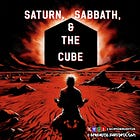
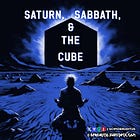
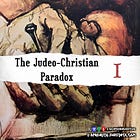




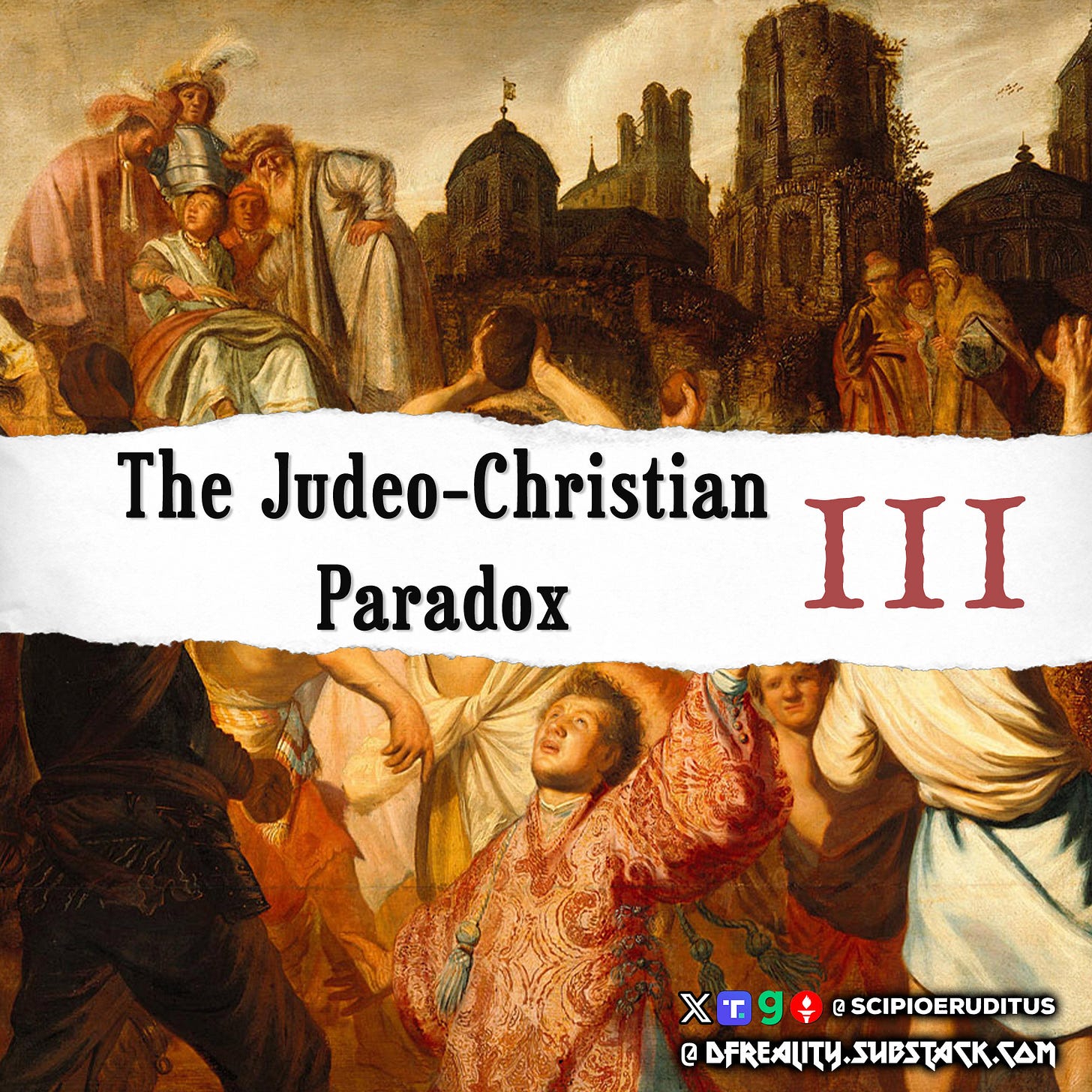

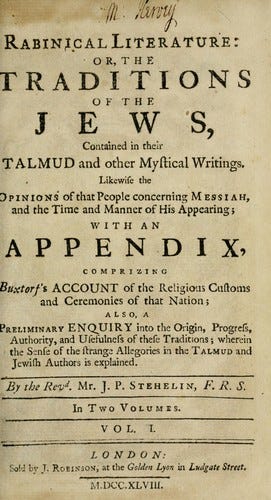
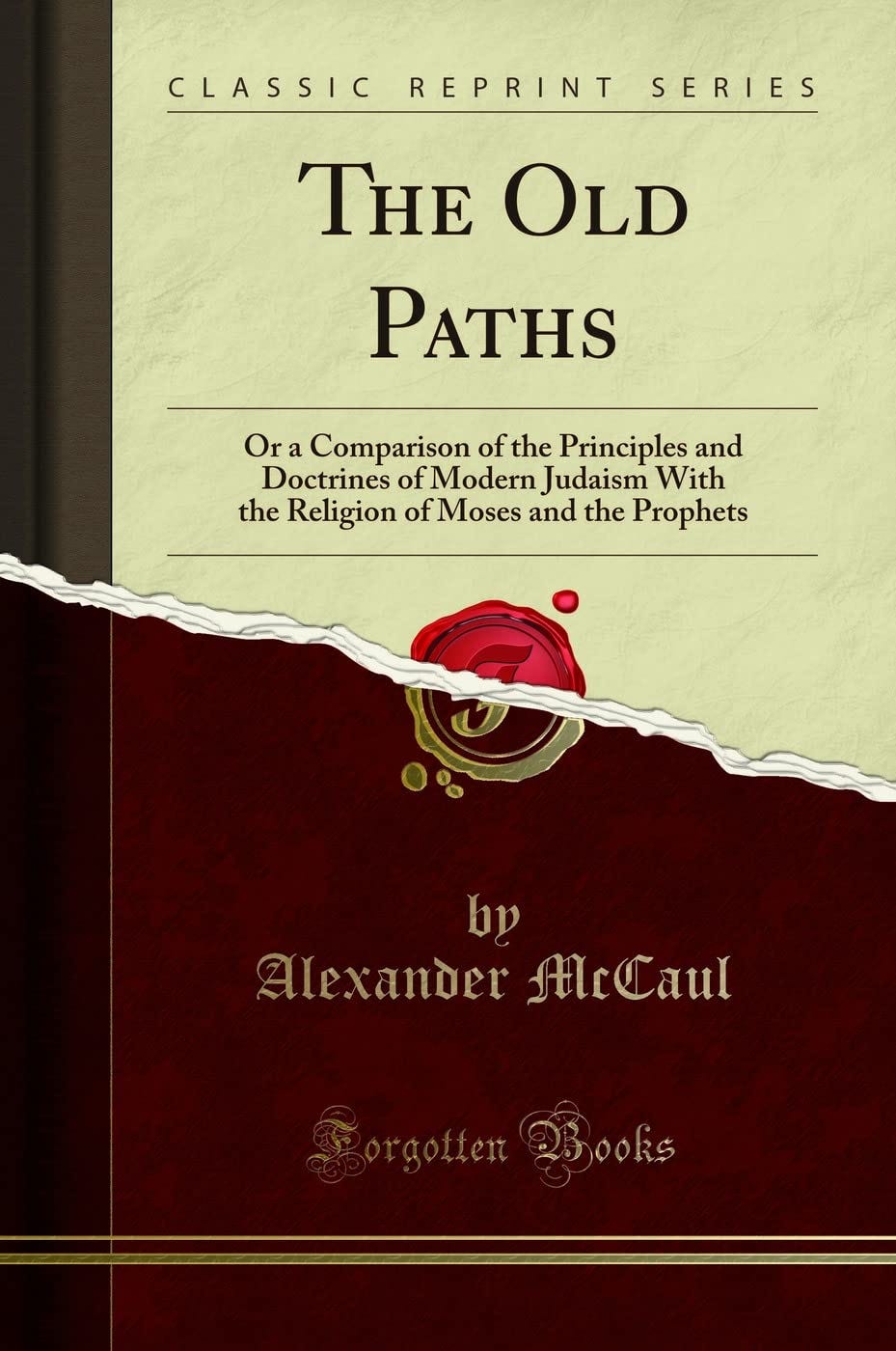
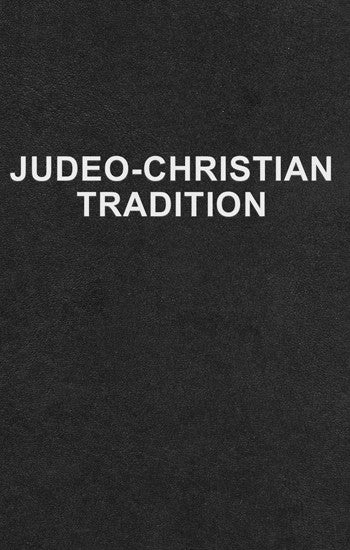
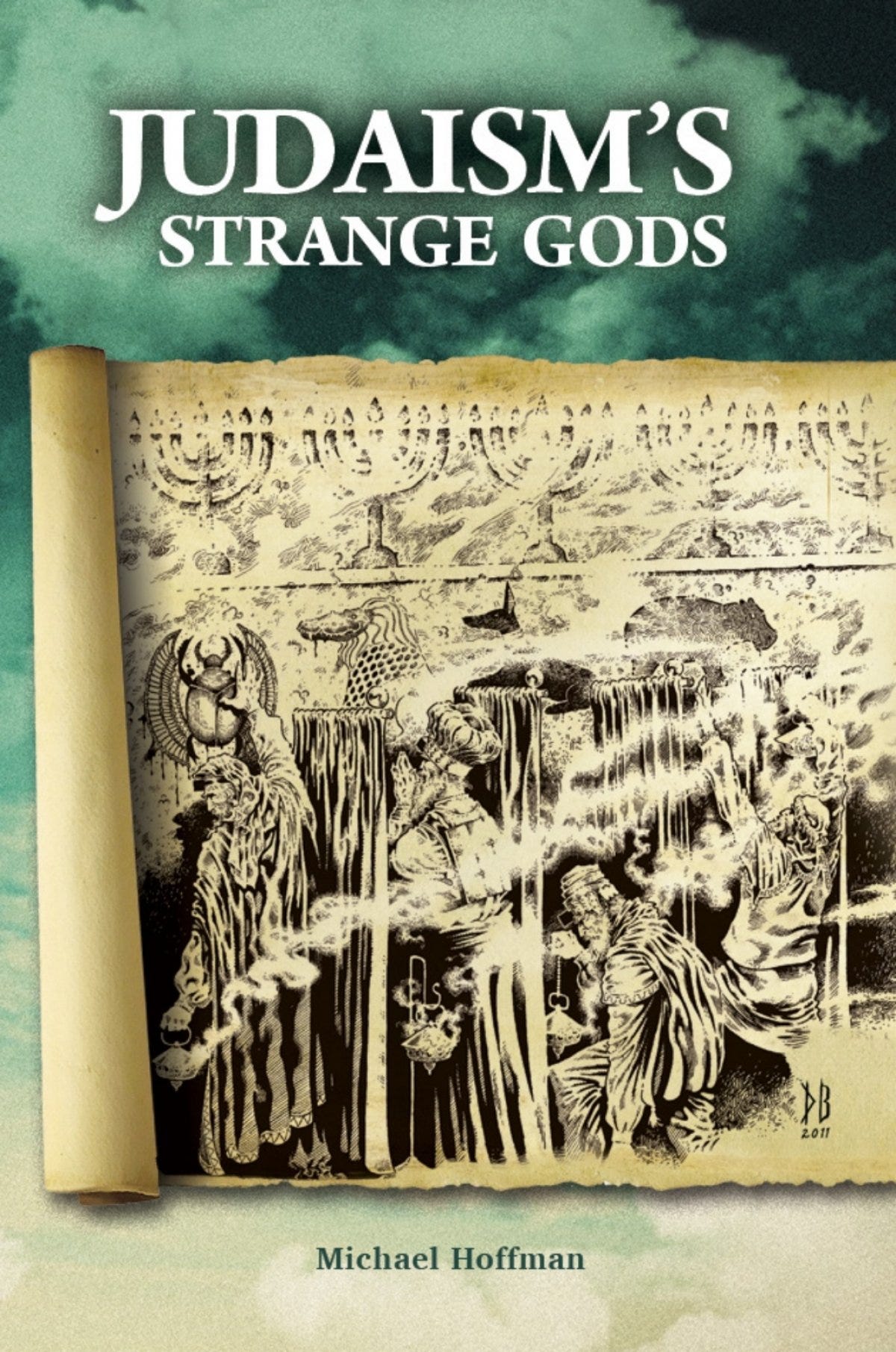
Amen. May the mighty and ever merciful hand of our eternally gracious and loving Father guide and guard you always.
I guess this explains today’s development of our Jewish president strongly suggesting that the Palestinians relocate to (paraphrasing) some yet-to-be-determined “beautiful” piece of land.